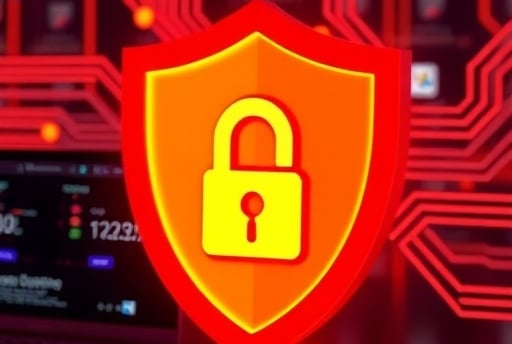The Magic of VPNs: What They Are & How to Use Them
The magic of VPNs: Uncover the hidden internet and protect your privacy with this simple guide."


What is a VPN?
* VPN stands for Virtual Private Network.
* It's like a secure tunnel that encrypts your internet traffic and masks your IP address.
* Think of it as giving your online activity a secret disguise.
How does a VPN work?
* Encryption: When you connect to a VPN, your internet traffic is encrypted, meaning it's scrambled and unreadable to anyone trying to intercept it.
* IP Masking: Your real IP address is hidden and replaced with the IP address of the VPN server you're connected to. This makes it harder for websites, your internet service provider (ISP), or anyone else to track your online activity.
Why use a VPN?
* Privacy: Protect your online privacy by hiding your browsing history and location from snoopers.
* Security: Encrypt your data to prevent hackers from stealing sensitive information.
* Unblocking Content: Access websites and content that are blocked in your region.
* Public Wi-Fi Safety: Secure your connection on public Wi-Fi hotspots, which can be vulnerable to hackers.
How to use a VPN:
* Choose a VPN Provider: Research reputable VPN providers like NordVPN, ExpressVPN, or Surfshark. Consider factors like speed, security features, and price.
* Create an Account: Sign up for a VPN service and download their app or software.
* Connect to a Server: Choose a server location based on your needs (e.g., for unblocking content or improving speed).
* Start Browsing: Once connected, your internet traffic will be routed through the VPN server, providing you with enhanced privacy and security.
Important Considerations:
* Free vs. Paid VPNs: Free VPNs may have limited features, slower speeds, or even sell your data. Paid VPNs generally offer better performance and privacy.
* Server Locations: Choosing a server closer to your physical location can improve speeds.
* Security Features: Look for VPNs with strong encryption protocols like AES-256.
By using a VPN, you can take control of your online privacy and security.
VPN FAQ: Your Guide to Online Privacy & Security
1. What is a VPN?
* In Simple Terms: A VPN (Virtual Private Network) creates a secure, encrypted tunnel for your internet traffic. Imagine it like a secret passageway for your online activity.
2. Why Should I Use a VPN?
* Boost Your Privacy:
* Hides your real location from websites, advertisers, and even your internet service provider (ISP).
* Prevents others from tracking your browsing history.
* Enhance Security:
* Encrypts your data, making it unreadable to hackers who might be snooping on public Wi-Fi.
* Protects your sensitive information like passwords and financial details.
* Unblock Geo-Restricted Content:
* Access streaming services (like Netflix) or websites that are unavailable in your region.
3. How Does a VPN Work?
* Connect: You connect to a VPN server operated by your chosen provider.
* Encrypt: Your internet traffic is scrambled and encrypted within this secure tunnel.
* Mask Your IP: Your real IP address is hidden, and the VPN server's IP address is used instead.
* Browse Freely: Your encrypted data travels through the VPN server to its destination, ensuring your online activity remains private.
4. Free vs. Paid VPNs: Which Should I Choose?
* Free VPNs: Often have limitations (slow speeds, limited data, fewer servers) and may compromise your privacy by selling your data.
* Paid VPNs: Generally offer better performance, more features, and stronger security.
5. How Do I Choose a VPN?
* Consider these key factors:
* Speed: Fast connections are crucial for streaming and gaming.
* Security: Strong encryption (like AES-256) and a strict no-logs policy are essential.
* Server Network: A wide range of servers in different locations provides better unblocking capabilities.
* Customer Support: Reliable customer support is important if you encounter any issues.
6. Can I Use a VPN on All My Devices?
* Absolutely! Most reputable VPN providers offer apps for Windows, macOS, iOS, Android, routers, and more.
7. Will a VPN Slow Down My Internet?
* Slightly: VPNs can introduce a minor speed reduction due to the extra encryption and routing. However, the impact varies depending on factors like server distance and network congestion.
8. Is Using a VPN Legal?
* Yes, generally. Using a VPN for personal use is legal in most countries. However, using it for illegal activities (like piracy) is prohibited.
This FAQ provides a basic overview of VPNs. If you have further questions, feel free to leave a comment below!
Disclaimer: This information is for general knowledge and guidance only.
I hope this comprehensive FAQ helps you understand the world of VPNs!


